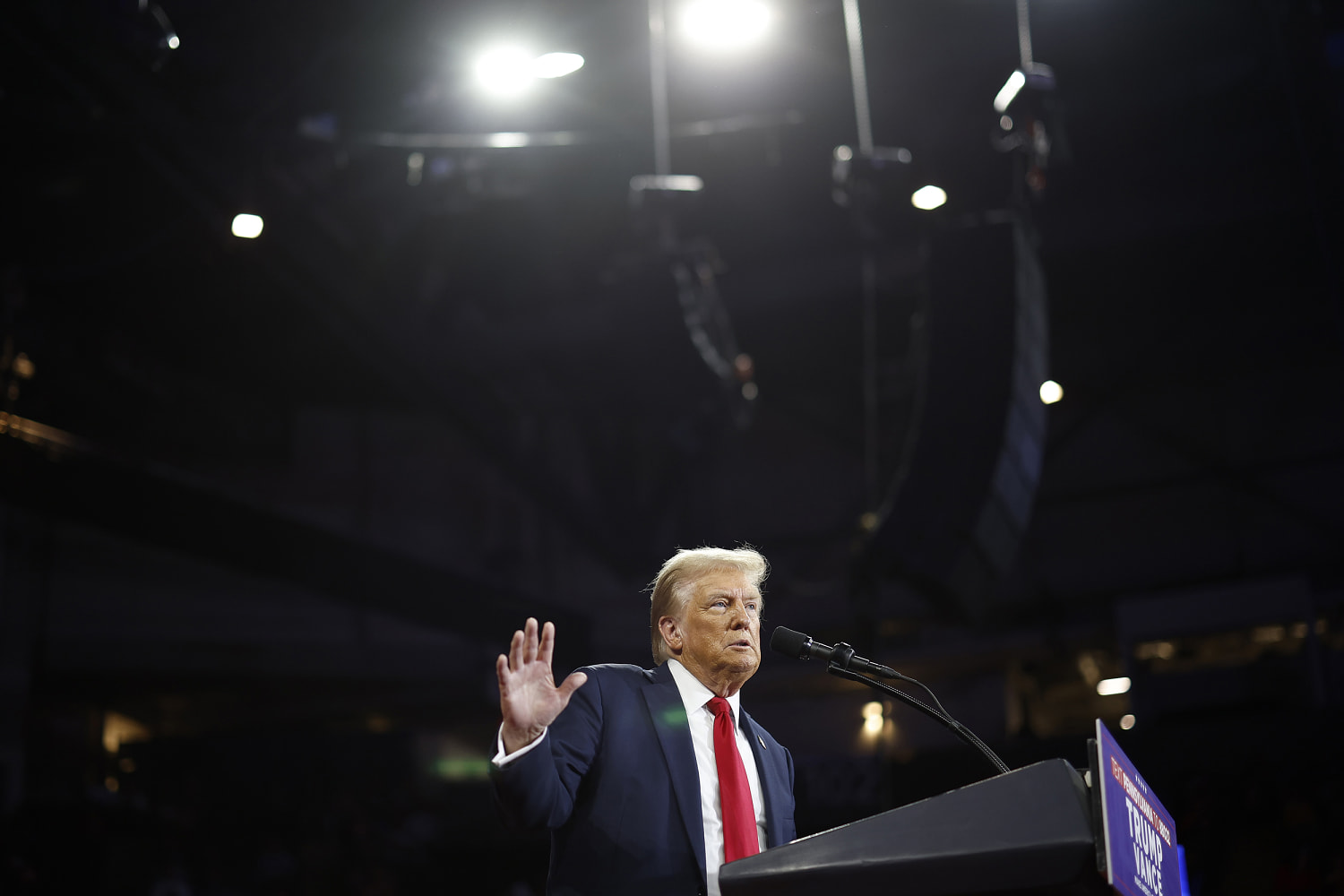
The mechanics of presidential transitions, the peaceful transfer of power between administrations, should be boring and unremarkable. The process is one of those things that until recently rarely drew much attention, due to its normalcy and lack of drama. But, as ever, former President Donald Trump is forcing us to pay attention to things we could previously safely ignore.
Trump’s transition team has missed key deadlines to guarantee a smooth handover should he win on Nov. 5 against Vice President Kamala Harris. His inaction speaks volumes about how he would govern if elected to a second term.
His inaction speaks volumes about how he would govern if elected to a second term.
By this point, presidential campaigns are supposed to be coordinating with the General Services Administration on how to prepare ahead of inauguration to take the reins of the enormity that is the federal government. The GSA provides resources that include office space and access to current administration officials to make sure everything keeps running without a gap. In return, campaigns are required to sign documents that promise adherence to the Presidential Transition Act.
The first document is a memorandum of understanding with GSA that lays out the government’s obligations and makes available several million dollars to help coordinate the transition. As The New York Times put it, the money “comes with a significant string attached: To receive it, each transition team must agree to disclose its private donors and impose a $5,000 limit on contributions from individuals or organizations.” Campaigns are also required to submit an ethics plan to the White House and promise not to hire lobbyists or other people with conflicts of interests for the transition. Finally, the candidates are supposed to submit an initial list of people who will need security clearances to receive the sort of classified briefings that will help get the incoming administration up to speed on national security issues.
The Harris-Walz campaign has submitted everything it’s required to submit (though its ethics plan was filed a few days after the Oct. 1 deadline, according to CNN). As of Friday morning, though, the Trump campaign had neither signed the memo of understanding nor submitted its ethics plan or its list of people to vet for security clearances.
The failure to submit the list of people who’ll need security clearances is the most obvious problem. The delayed handover from the Clinton administration to the Bush administration after the 2000 election was, according to the 9/11 Commission, a factor in the latter missing the warning signs of the Sept. 11, 2001, attacks. But the mistrust here comes from the top. Trump said over the summer that he would eschew the national security briefings that major candidates typically receive, while claiming that his mishandling of classified information was really the briefers’ fault.
Trump’s disrespect for the transition process isn’t a shock. After his unexpected win in 2016, he upended the careful planning that had been done up to that point. At the urging of his son-in-law, Jared Kushner, he fired then-Gov. Chris Christie of New Jersey, who had been managing the transition, and named Vice President-elect Mike Pence in his place. But Kushner and Trump’s adult children effectively ran the show. Obama administration officials later recalled waiting around for meetings that never took place to brief the incoming Trump administration, a refusal to participate that contributed to the legendary amounts of chaos surrounding Trump’s opening days.
What great loss is there in not receiving institutional knowledge he plans to disregard?
But if Trump is as sold on Project 2025 as we suspect he is, his goal isn’t to have a smooth transition. It’s to upend the government as it exists, depending on a fleet of lackeys who have experience pulling the levers of power and will enable his worst instincts. Already efforts are underway to prepare a purge of many career civil servants tasked to carry out the continuity of government.
Though millions in public transition funds are available, the opportunity to raise private funds is greater still. As late as 2022 there were still concerns about just how the $2 million in leftover funds that Trump’s transition team raised in 2016 was being used. Without an agreement in place to limit fundraising, there’s little to stop Trump from using the money he raises this time to enrich himself or as an opportunity for influence peddling.
Trump ignoring the transition rules established in 1963 highlights the fragility of the transition process. What importance would Trump see in filing an ethics document he most likely wouldn’t follow? What great loss is there in not receiving institutional knowledge he plans to disregard?
One of the most exhausting parts of living through the Trump era is the constant vigilance required. Something as banal as the transition process is meant to take place in the background, like stagehands in black changing out scenery between acts of a play, our eyes encouraged to glaze past them. Instead, Trump forces us to scrutinize everything he does for signs of his misdeeds, a project that is as draining as it is necessary.
